Resources
Style
Planning
View All
THE blog
Polycystic Ovary Syndrome (PCOS) affects millions of women worldwide, often making the journey to conception a challenging one. If you’re navigating the complexities of PCOS, understanding the role of insulin resistance is crucial not just for managing symptoms but also for enhancing your fertility naturally. This comprehensive guide aims to illuminate the connection between PCOS and insulin resistance, offering practical dietary and lifestyle tips to help you take control of your health.
A journey of a thousand miles begins with a single step. Let’s start with understanding how insulin resistance impacts PCOS.
- Types of PCOS
- What is Insulin Resistance?
- Causes of Insulin Resistance in PCOS
- Symptoms of Insulin Resistance
- Dietary Tips for Managing Insulin Resistance
- Which Labs to Request when you have PCOS
- Conclusion
Types of PCOS
There are four different types of PCOS. Each type comes with its own set of challenges and requires tailored management strategies.
- Insulin-Resistant PCOS: This is the most common type and is characterized by significant insulin resistance, leading to high insulin levels. Managing this type involves focusing on improving insulin sensitivity through diet and lifestyle changes.
- Inflammatory PCOS: Women with this type often experience symptoms like unexplained fatigue, skin issues like eczema or psoriasis, and elevated levels of inflammation markers. Anti-inflammatory diets and stress management techniques can be particularly beneficial.
- Adrenal PCOS: This type is linked to an abnormal stress response, leading to elevated levels of DHEA-S, a hormone produced by the adrenal glands. Stress reduction techniques and targeted dietary changes are crucial for managing this type.
- Post-Pill PCOS: Some women experience PCOS-like symptoms after discontinuing birth control pills. This type often resolves on its own, but meanwhile, focusing on hormonal balance and liver health can help.
Understanding which type or combination of types of PCOS you have can significantly impact your fertility treatment plan. It’s essential to work with a healthcare provider to determine your specific type and develop a personalized strategy.
Okay, so let’s dive into the first one: insulin-resistant PCOS. Up to 70% of women with PCOS have insulin resistance, so this tends to be the one we focus on the most in our practice. But really, all women should be concerned with blood sugar management when trying to conceive.
What is insulin resistance?
Insulin resistance is a condition where your body’s cells become less responsive to the hormone insulin. This means that the glucose in your blood isn’t efficiently absorbed into your cells, leading to higher blood sugar levels. For women with PCOS, this can be particularly problematic, as insulin resistance can exacerbate many of the symptoms associated with the syndrome.

In simple terms, when you eat, your body breaks down carbohydrates into glucose, which is the main source of energy for your cells. Insulin, produced by the pancreas, helps transport this glucose into your cells. When you have insulin resistance, your cells don’t respond effectively to insulin, so your pancreas produces more insulin to compensate. This can lead to a myriad of issues, including weight gain and difficulty losing weight, two common problems associated with PCOS.
The relationship between PCOS and insulin resistance is complex. Though insulin resistance is commonly linked to obesity, it can also occur in women with PCOS who are lean. Research has shown that the mechanism of insulin resistance in PCOS differs from that seen in individuals with type 2 diabetes, suggesting unique cellular and receptor abnormalities.
It’s crucial to address insulin resistance not only to improve your fertility but also to reduce the risk of developing other long-term health issues like type 2 diabetes and cardiovascular diseases. Therefore, understanding and managing insulin resistance through diet, exercise, and possibly medications such as metformin is vital for anyone dealing with PCOS.
Causes of Insulin Resistance in PCOS:
This debilitating condition isn’t only limited to those struggling with weight issues; it affects lean women as well. Insulin resistance in PCOS involves a complex interplay between hormones and metabolic processes.
In many cases, the body’s cells become less responsive to insulin, forcing the pancreas to produce more of this hormone to compensate. This condition, known as compensatory hyperinsulinemia, exacerbates the hormonal imbalances already present in PCOS, contributing to an increase in androgen levels. Elevated androgens can lead to several of the symptoms associated with PCOS, such as irregular menstrual cycles, acne, and excessive hair growth.
Understanding the underlying causes and identifying symptoms can help you take targeted steps to manage them effectively. Research has shown that regardless of body mass index, the unique cellular mechanisms and insulin receptor functions in women with PCOS are inherently different.
It’s essential to recognize these differences to tailor appropriate lifestyle and dietary modifications that can help regain control over your insulin levels and improve your overall reproductive health. Taking proactive steps can make a significant difference in managing both PCOS and insulin resistance.
Symptoms of Insulin Resistance:
Recognizing the symptoms of insulin resistance can be a crucial step in managing PCOS effectively. Often, these symptoms overlap with those of PCOS, making it essential to pay close attention to your body and how it responds to different situations and dietary choices.
Common symptoms of insulin resistance include:
- Increased hunger and cravings, particularly for sugary or carbohydrate-rich foods
- Weight gain, especially around the abdomen, despite no significant changes in diet or lifestyle
- Fatigue or feeling overly tired, even after adequate rest
- Difficulty losing weight, even with diet and exercise efforts
- Dark, velvety patches of skin, often found on the neck, armpits, or groin area, known as acanthosis nigricans
- Frequent or increased need to urinate
- Increased thirst
If you notice these symptoms, it’s important to speak with your healthcare provider. Early diagnosis and management can help mitigate the risk of associated conditions, such as type 2 diabetes. Testing for insulin resistance typically involves blood tests to measure fasting blood glucose and insulin levels. Other tests, like the oral glucose tolerance test (OGTT), may also be utilized to get a comprehensive understanding of your body’s insulin response.
Understanding these symptoms and seeking timely medical advice can empower you to take control of your health and make informed decisions about your lifestyle and dietary choices.
Dietary Tips for Managing Insulin Resistance
In our private practice, we work with many women with PCOS. In fact PCOS is the leading cause of fertility struggles among women. 70-80% of women with PCOS experience infertility. Luckily, there are ways to manage PCOS and insulin resistance, and still go on to have a healthy pregnancy.
One of the cornerstones of managing PCOS and improving fertility is understanding and addressing insulin resistance. Insulin resistance plays a significant role in how PCOS affects your body, contributing to issues like weight gain, irregular menstrual cycles, and difficulty with ovulation. By focusing on lifestyle and dietary changes, you can effectively reduce insulin resistance and enhance your chances of conception.
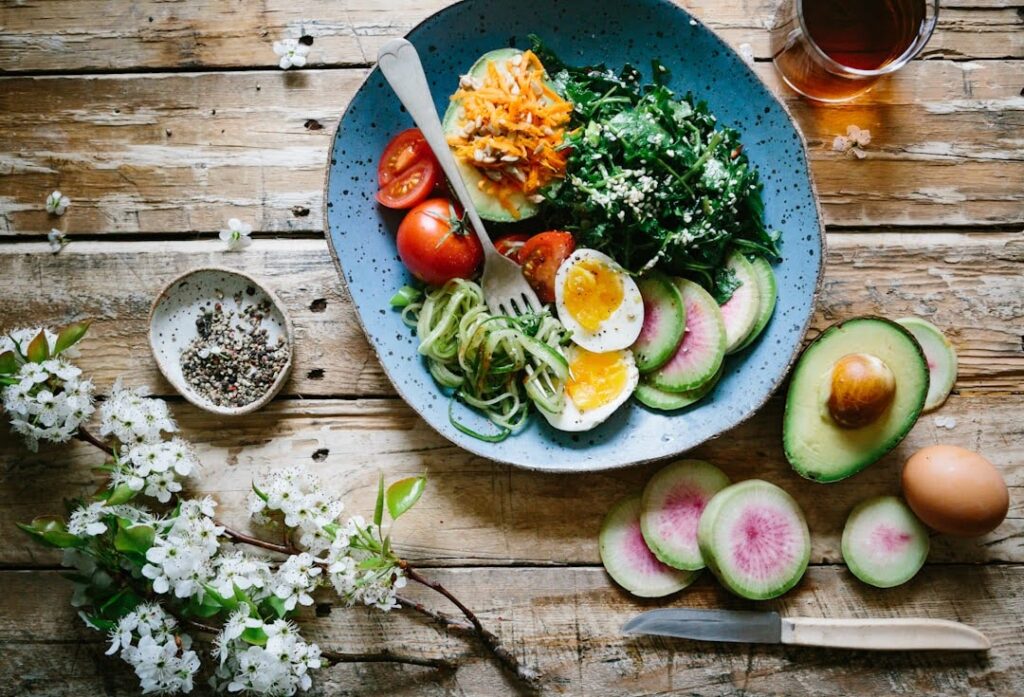
Firstly, adopting a balanced diet rich in whole foods is crucial. Emphasize low glycemic index (GI) foods, which help manage blood sugar levels more effectively. Think whole grains, legumes, lean proteins, and plenty of vegetables. Incorporating these into your daily meals can stabilize insulin levels and support overall health. Dietary changes can improve insulin sensitivity by 25-30%
To further optimize your diet for managing insulin resistance, follow these specific tips:
- Balance Your Carbs: Avoid eating carbohydrates on their own. Pair them with proteins or healthy fats to slow down digestion and prevent sudden spikes in blood sugar levels. Low glycemic index diets can improve menstrual regularity in women with PCOS by 50%
- Protein Intake: Aim for 1 gram of protein per pound of body weight each day. Quality sources include lean meats, fish, eggs, dairy, and plant-based options like beans and lentils.
- Fiber-Rich Foods: Include plenty of fiber-rich foods in your diet, such as fruits, vegetables, whole grains, and legumes. Fiber helps regulate blood sugar levels and promotes a feeling of fullness, which can aid in weight management. Aim for 30-40g of fiber per day. Using an app to track your food can be helpful here!
Implementing these tips can promote better blood sugar control and overall health, making it easier to manage symptoms of PCOS and insulin resistance.
Regular physical activity is another essential component. Exercise not only aids in weight management but also improves insulin sensitivity. Aim for a combination of aerobic exercises like walking, swimming, or cycling, along with strength training to build muscle mass, which helps your body use insulin more efficiently. Regular physical activity can reduce insulin resistance by up to 60% – so it’s a good idea to find an activity you really enjoy doing!
Stress management techniques such as mindfulness, yoga, or meditation can also play a critical role. Chronic stress can exacerbate insulin resistance and disrupt your hormonal balance, so finding ways to relax and manage stress is vital.
Lastly, working closely with a healthcare provider to monitor your condition and perhaps incorporating medications like Metformin can further assist in managing insulin resistance. A comprehensive approach that combines diet, exercise, stress management, and medical guidance offers the best chance for improving fertility and achieving a healthy pregnancy with PCOS.
If you’ve recently been diagnosed with PCOS, here are some labs you can ask your doctor to run for you:
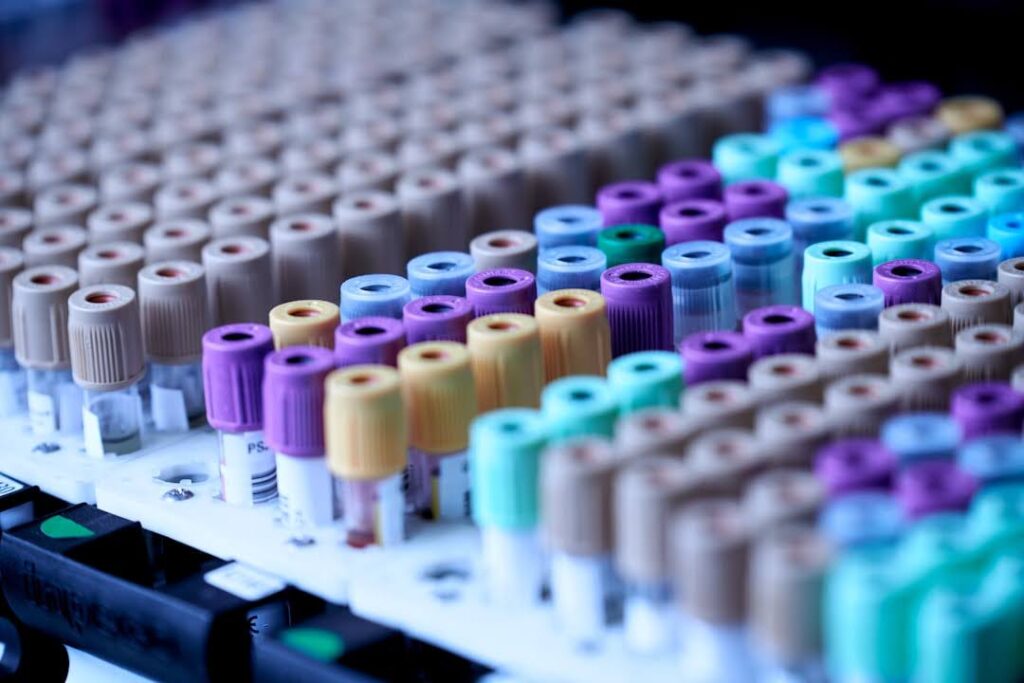
- B12
- Vitamin D
- Fasting Insulin
- Fasting Glucose
- A1c
- CRP
- Lipid Profile
- Thyroid Panel
- Liver Function Tests
Understanding the importance of specific lab tests can illuminate how best to manage PCOS and its associated insulin resistance.
B12: Vitamin B12 is crucial for energy production and neurological function. Deficiencies, often found in those with PCOS, can exacerbate fatigue and other metabolic issues. Women who are prescribed Metformin should be especially concerned with their vitamin B12 levels as this medication will lower B12 over time.
Vitamin D: This vitamin plays a significant role in insulin sensitivity and hormone regulation. Low levels, common in PCOS, can impair glucose metabolism and worsen insulin resistance.
Fasting Insulin: Measuring fasting insulin helps assess insulin resistance, a key factor in PCOS. Elevated fasting insulin levels can indicate that your body is struggling to manage blood sugar effectively.
Fasting Glucose: This test checks for impaired fasting glucose, which can signify prediabetes. It’s a straightforward way to gauge how well your body is handling blood sugar regulation.
A1c: Hemoglobin A1c provides an average of your blood sugar levels over the past three months, offering a comprehensive picture of glucose control. High levels suggest chronic insulin resistance or diabetes.
CRP: C-reactive protein is a marker for inflammation, which is often elevated in PCOS. High levels can indicate chronic low-grade inflammation contributing to insulin resistance.
Lipid Profile: This panel measures cholesterol and triglycerides, vital for understanding cardiovascular risk. PCOS often correlates with unfavorable lipid profiles, increasing the risk of heart disease.
Thyroid Panel: Hypothyroidism is common in women with PCOS and can exacerbate symptoms like weight gain and irregular periods. A thyroid panel ensures that thyroid function is not contributing to metabolic issues.
Liver Function Tests: These tests evaluate liver health, critical in PCOS management. Elevated liver enzymes can signal fatty liver, a condition frequently associated with insulin resistance.
Navigating the complexities of PCOS and insulin resistance can be challenging, but with the right strategies, you can take control of your health. By understanding the relationship between diet, lifestyle, and hormone balance, you can naturally improve your fertility and overall well-being. However, every journey is unique. If you’re looking for personalized guidance, our 1-1 coaching services are here to help.
Our expert coaches specialize in tailoring advice to meet your specific needs, helping you to implement effective changes seamlessly. From customized meal plans to stress management techniques, we offer comprehensive support to ensure you achieve your health goals.
Ready to take the next step? Contact us today and start your journey towards a healthier, more balanced life with our dedicated 1-1 fertility nutrition coaching services.
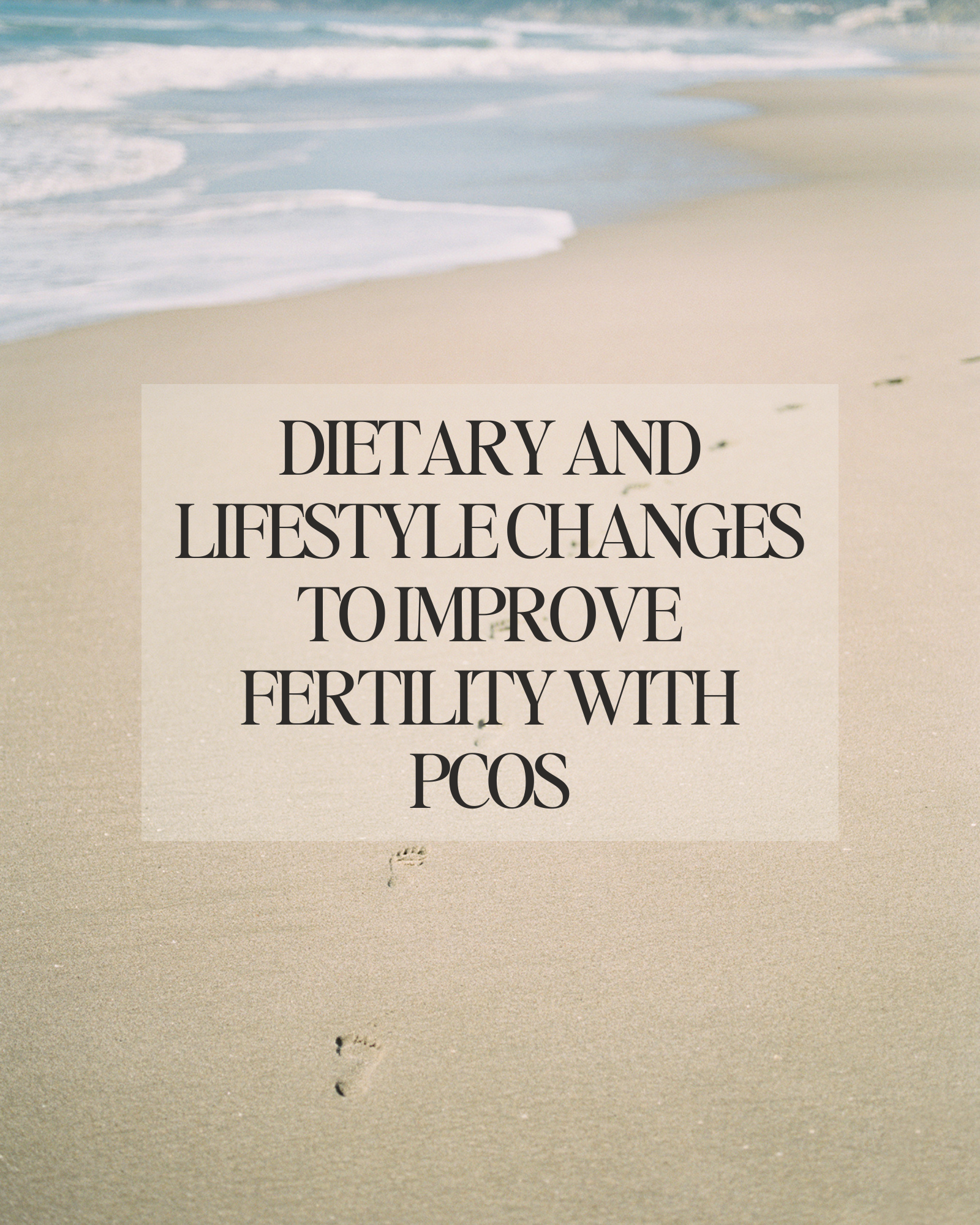
By: Anabelle Harari Clebaner MS, RDN
Diet impacts everything
Want to boost fertility? 🌟 Start with what’s on your plate. Yep, your diet can make a HUGE difference.
When it comes to fertility, adequate nutrition plays a pivotal role. The right nutrients can significantly influence your reproductive health, improving your chances of conception and a healthy pregnancy.
As a fertility dietitian, I know firsthand just how much nutrition makes an impact on your reproductive health, after working with hundreds of women in my private practice, Wellspring Nutrition.
Think of it this way – you have three opportunities every single day to make a healthy choice that nourishes your body for fertility and pregnancy.
So let’s get right into it – here are 5 foods you can start to incorporate or increase in your diet to start to see positive changes in your fertility.
Leafy greens: The superstars 🌿
Spinach, kale, and their leafy friends are packed with folate, iron, and antioxidants.
Folate is essential for: DNA synthesis and repair, embryonic development, and preventing neural tube defects.
Folic acid is crucial for both men and women. For women, it helps create a healthy environment for egg fertilization and early embryonic growth. For men, it supports healthy sperm production.
Iron is essential for: Hemoglobin production and oxygen transport.
Adequate iron levels prevent anemia, which can affect ovulation and overall energy levels, making your body more conducive to conception.
These nutrients are your fertility BFFs. Add them to salads, smoothies, or soups. Easy peasy!
Fatty fish: Omega-3 magic 🐟
We can’t have a conversation about Omega-3 fats without also talking about Omega-6 fats.
Both Omega-3 and Omega-6 fatty acids are essential polyunsaturated fats, meaning your body cannot produce them, and they must be obtained through your diet. Despite being in the same family of fats, they have different roles and effects on the body.
The three most important types are:
– **EPA (Eicosapentaenoic Acid)**: Found in fatty fish such as salmon, mackerel, and sardines. – **DHA (Docosahexaenoic Acid)**: Also found in fatty fish and is a crucial component of brain and eye health.
– **ALA (Alpha-Linolenic Acid)**: Found in plant sources like flaxseeds, chia seeds, and walnuts.
ALA can be converted to EPA and DHA in the body, but this process is relatively inefficient.
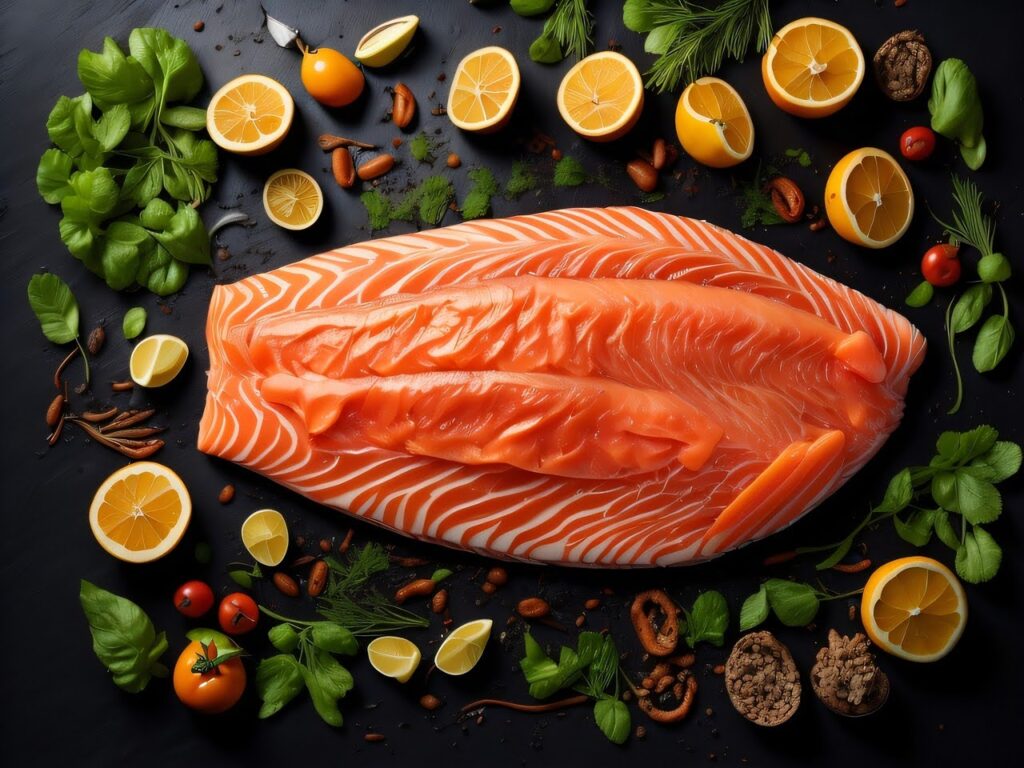
Health Benefits
**Anti-Inflammatory**: Omega-3s help reduce inflammation in the body, which can lower the risk of chronic diseases such as heart disease and arthritis. – **Cardiovascular Health**: They are known for their heart-protective effects, reducing blood pressure, and improving cholesterol levels. – **Mental Health**: Omega-3s play a crucial role in brain health and have been linked to reduced symptoms of depression and anxiety. – **Fertility**: As mentioned earlier, they improve egg quality, regulate ovulation, and reduce the risk of endometriosis.
Omega-6 Fatty Acids
Types
The most common type is: – **LA (Linoleic Acid)**: Found in vegetable oils like sunflower, soybean, and corn oil. – **AA (Arachidonic Acid)**: Found in meat and eggs; it is derived from LA. – **GLA (Gamma-Linolenic Acid)**: Found in evening primrose oil and blackcurrant seed oil; it’s a less common omega-6.
Health Benefits
**Pro-Inflammatory and Anti-Inflammatory**: Omega-6 fats can produce both pro-inflammatory and anti-inflammatory compounds. The body’s balance of omega-6 to omega-3 determines the effect. – **Skin Health**: Omega-6 fatty acids can help support skin barrier function and hydration. – **Growth and Development**: Essential for normal growth and brain function, particularly in children.
Key Differences
**Balance and Ratio** – **Ideal Ratio**: Historically, humans consumed Omega-3 and Omega-6 fats in a balanced ratio of about 1:1 to 1:4. However, modern diets tend to have a ratio closer to 1:20 or 1:30, significantly skewed towards Omega-6, leading to an imbalance.
**Health Impact**: An imbalanced ratio (high in Omega-6 and low in Omega-3) can promote inflammation and contribute to chronic diseases. Ensuring an adequate intake of Omega-3s while reducing excessive Omega-6s can optimize health.
Sources
**Omega-3s**: Primarily found in fatty fish (salmon, mackerel, sardines), flaxseeds, chia seeds, walnuts, and algae.
**Omega-6s**: Found mostly in vegetable oils, nuts, seeds, and processed foods. They are more prevalent in the typical Western diet.
While both Omega-3 and Omega-6 fatty acids are essential for health, maintaining a proper balance between them is crucial. Increasing your Omega-3 intake and being mindful of Omega-6 consumption can help in achieving better overall health and reducing the risk of chronic diseases.
Omega-3 Fatty Acids are Essential for: Reducing inflammation, hormone production, and cell membrane function.
Omega-3 fatty acids are known to improve egg quality, regulate ovulation, and reduce the risk of endometriosis. For men, they improve sperm quality and mobility.
So where do you find Omega-3 fatty acids? Salmon, mackerel, and sardines are where it’s at. These fatty fish are fertility wonders. Grill ’em, bake ’em, or toss ’em in a salad. Your future self will thank you.
Nuts and seeds: Tiny powerhouses 🥜
Pumpkin seeds, walnuts, and almonds are considered tiny powerhouses because they are bursting with zinc and selenium. When it comes to fertility, both zinc and selenium play critical roles in ensuring optimal reproductive health. These essential trace minerals are involved in numerous bodily functions, specifically those related to reproductive health for both men and women.

Zinc
Zinc is vital for:
- Hormone Regulation: Zinc helps in regulating hormone levels, particularly testosterone in men and estrogen and progesterone in women. Balanced hormone levels are crucial for a healthy reproductive system.
- Sperm Production and Quality: In men, zinc is essential for spermatogenesis, the process of sperm production. It also enhances sperm motility and morphology, crucial factors for successful fertilization.
- Ovulation: For women, zinc supports the maturation of eggs and ensures regular ovulation, which is essential for conception.
- DNA Synthesis: Zinc is involved in DNA synthesis and cell division, processes that are fundamental during the early stages of fetal development once conception occurs.
Selenium
Selenium contributes to fertility by:
- Antioxidant Support: Selenium acts as a powerful antioxidant, protecting reproductive cells from oxidative stress, which can damage sperm and eggs.
- Thyroid Function: Proper thyroid function, supported by selenium, is crucial for fertility. The thyroid gland regulates many metabolic processes, including those that affect reproductive health.
- Sperm Quality: In men, selenium is essential for the formation and motility of sperm. It helps in maintaining the integrity and function of sperm cells.
- Development: Selenium plays a role in the early stages of embryo development by ensuring proper DNA synthesis and protecting against cellular damage.
Snack on them, throw them in your oatmeal, or mix them in a trail mix – there’s no way to go wrong here! And if you want to learn more about seed cycling, check out this blog right here.
Berries: Antioxidant champs 🍓
Blueberries, strawberries, and raspberries are loaded with antioxidants. These little champs keep your reproductive system in top shape. Enjoy them fresh, frozen, or in a smoothie. Yum!
Antioxidants are compounds that help protect the body from oxidative stress, which is caused by an excess of free radicals—unstable molecules that can damage cells.
Free radicals are naturally produced during metabolism, but environmental factors like pollution, UV exposure, and poor diet can increase their levels.
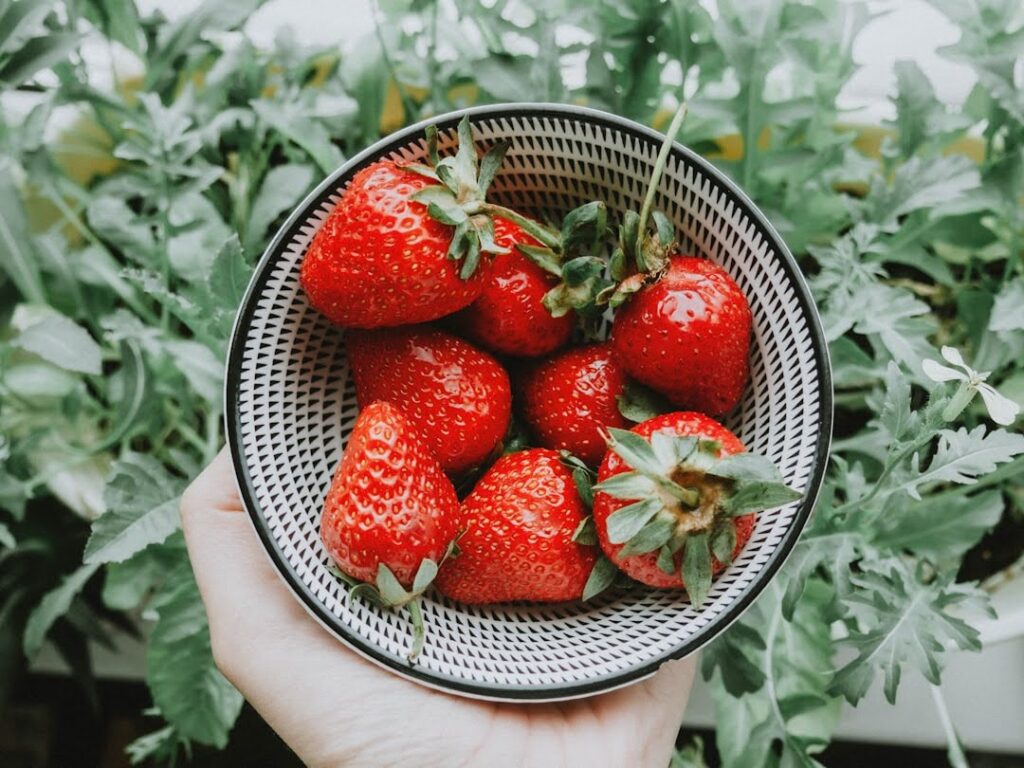
Berries Images – Free Download on Freepik
Importance of Antioxidants for Fertility
1. **Protecting Reproductive Cells**: Antioxidants help neutralize free radicals, reducing oxidative stress on reproductive cells like sperm and eggs. This protection is crucial for maintaining the health and viability of these cells.
2. **Improving Egg Quality**: Oxidative stress can negatively affect egg quality, leading to issues like chromosomal abnormalities. Antioxidants can improve the quality and viability of eggs by reducing this stress.
3. **Enhancing Sperm Health**: In men, antioxidants play a vital role in protecting sperm from oxidative damage, which can affect sperm count, motility, and overall fertility.
4. **Supporting Hormonal Balance**: Certain antioxidants, like vitamin E and Coenzyme Q10, are involved in hormone production and regulation, which is essential for fertility.
5. **Reducing Inflammation**: Antioxidants like vitamin C, E, and selenium have anti-inflammatory properties, which can help reduce inflammation in the reproductive organs, supporting overall fertility.
Including a variety of antioxidant-rich foods like berries, nuts, seeds, leafy greens, and colorful vegetables can be beneficial for those looking to optimize their fertility.
Eggs: The complete package 🍳
Eggs—especially organic, free-range ones—are amazing. They’re packed with choline and protein, both super important for fertility. Scramble them, poach them, or make a frittata. So versatile!
Eggs are an excellent food for fertility, and one of the key reasons is their high content of choline, an essential nutrient that plays a significant role in reproductive health.
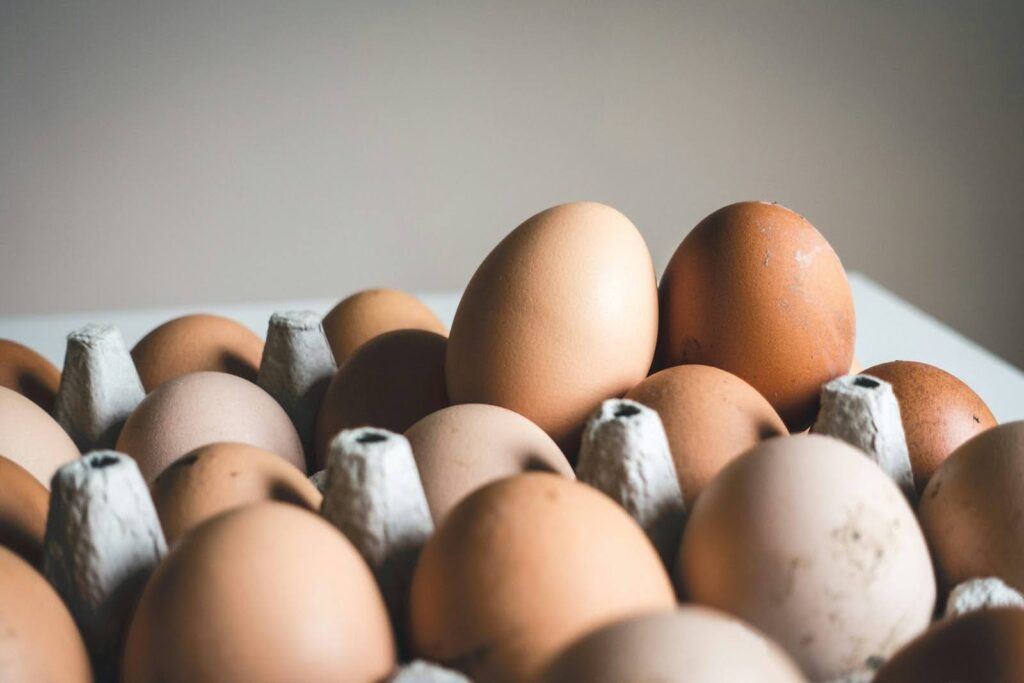
Eggs Pictures [HD] | Download Free Images on Unsplash
Choline and Fertility
1. **Cell Membrane Formation**: Choline is crucial for the formation and maintenance of cell membranes. This is particularly important during pregnancy, as it supports the development of the baby’s brain and nervous system. In the context of fertility, choline ensures the health and integrity of reproductive cells, such as eggs and sperm.
2. **Gene Expression**: Choline is involved in methylation, a process that regulates gene expression. Proper methylation is essential for DNA synthesis and repair, which is vital for healthy cell division and the development of a viable embryo.
3. **Reducing Neural Tube Defects**: Adequate choline intake during pregnancy is associated with a lower risk of neural tube defects in the developing baby. For those trying to conceive, ensuring sufficient choline intake can help prepare the body for a healthy pregnancy.
4. **Supporting Hormone Production**: Choline is a precursor to acetylcholine, a neurotransmitter that plays a role in muscle control and memory but also supports hormone production and regulation. Balanced hormone levels are crucial for ovulation and overall reproductive health.
Other Nutrients in Eggs
In addition to choline, eggs are packed with other nutrients that support fertility:
– **Protein**: Eggs are an excellent source of high-quality protein, essential for the growth and repair of tissues, including reproductive tissues.
– **Healthy Fats**: The healthy fats in eggs, including omega-3 fatty acids, support hormone production and reduce inflammation.
– **Vitamins and Minerals**: Eggs are rich in vitamins like B12, D, and A, as well as minerals like selenium and zinc, all of which play important roles in reproductive health.
Practical Tips
– **Whole Eggs**: Most of the choline in eggs is found in the yolk, so it’s important to consume whole eggs rather than just egg whites.
– **Balanced Diet**: Including eggs as part of a balanced diet can provide a variety of essential nutrients that collectively support fertility. Pairing eggs with other fertility-boosting foods like leafy greens, avocados, and whole grains can further enhance their benefits.
Incorporating eggs into your diet, especially for those looking to boost fertility, is a simple and effective way to ensure you’re getting enough choline and other vital nutrients.
Conclusion: Make it a habit
So, there you have it—the top 15 fertility-boosting foods – phew! That was a lot. Start adding these to your daily meals to reap all the benefits!
And if you’re looking for a super easy way to incorporate these foods, and so many others that are vital for fertility, check out my four-week fertility meal plan.
It was designed to take all of the nutrients important for fertility and translate it into delicious, healthy, and simple recipes to naturally nourish your fertility.
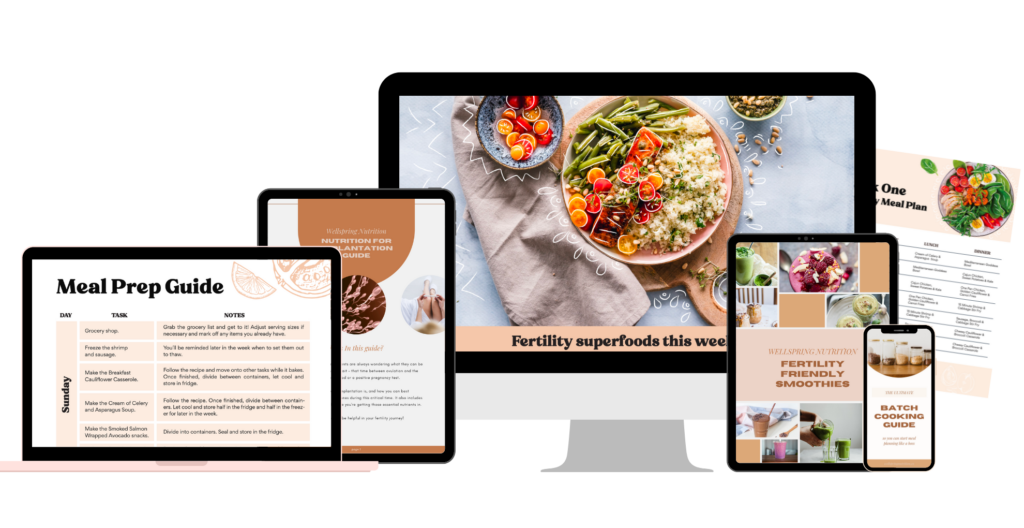
Whether you’re planning your next IUI cycle or are just getting started on your preconception journey, investing in your health is always worth it!
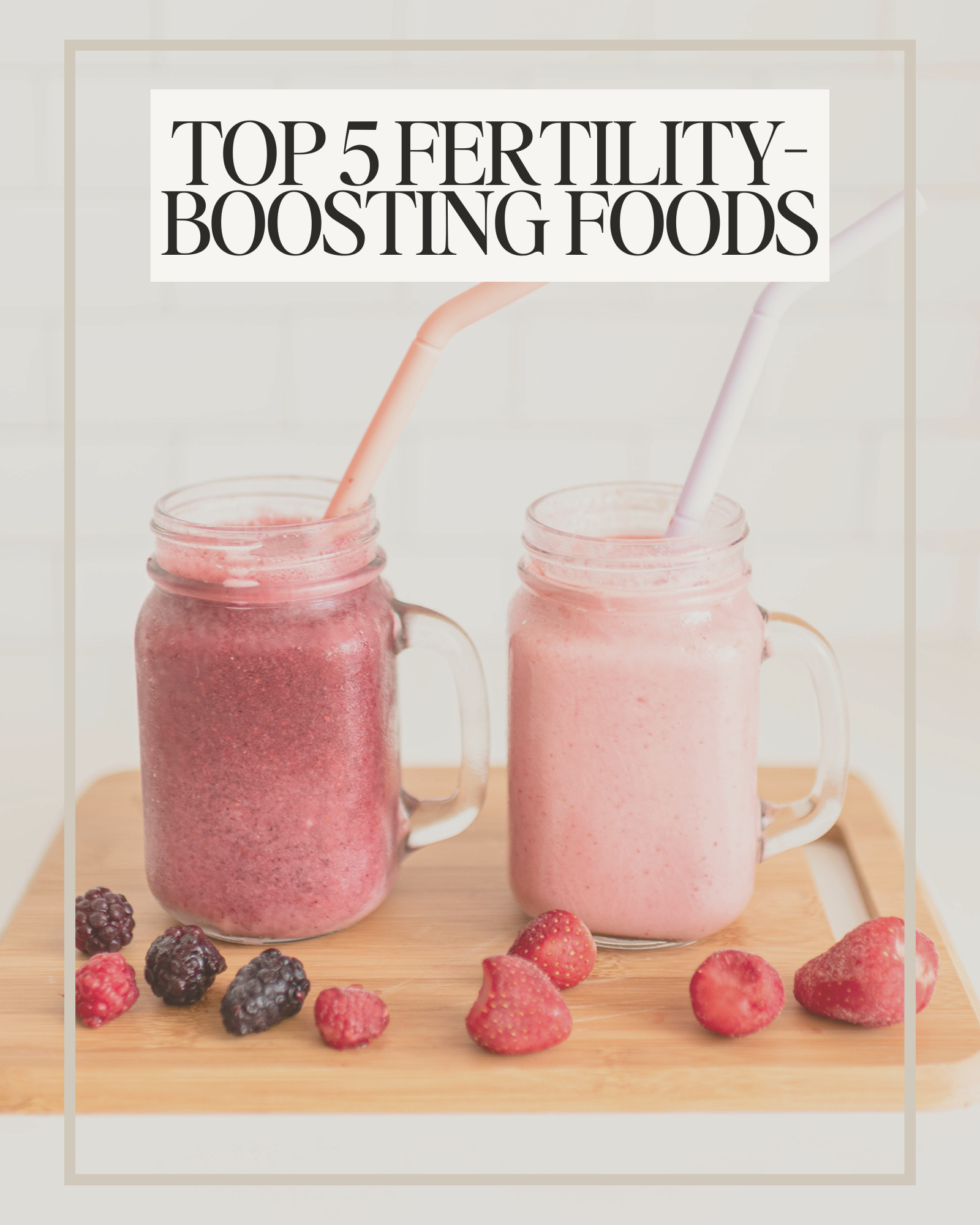
“At no point in human nutrition is it more critical to ensure adequate nutrient intake than during the state of pregnancy”
– Bruce Hollis, PhD
Studies show 95 percent of pregnant women are nutritionally depleted.
Fertility, pregnancy, and postpartum are some of the most physically and mentally demanding times in a woman’s life. Unfortunately, the prenatal vitamin industry is failing women, leaving 95% depleted when nutrition for body and mind is needed most.
Why?
Because most supplement companies follow the current RDAs.
RDAs are based on outdated research methods and studies conducted mainly on white men. In fact, pregnant and breastfeeding women were intentionally excluded from 83% of the studies chosen as the basis for the current perinatal RDAs. Including pregnant and breastfeeding women in clinical research was considered too risky and so these groups were excluded from clinical research under the guise of “protection”.
Ironically, their exclusion ultimately led to misinformed recommendations and a major gap in our collective understanding of women’s bodies, which had a devastating impact on millions of women and their families not set to support the mother in addition to the baby.
Over 630 nutrition studies support the finding that for many nutrients, the current nutritional guidelines for pregnancy and lactation are set well below optimal levels. Take choline as an example. More and more research is showing that the RDA for choline consumption should be much higher than it is to support a baby’s brain development.
Yet 90% or more women aren’t even reaching the current RDA level and most prenatals don’t even include choline in their formulation at all!
Why isn’t this research making its way into the official perinatal nutrition guidelines? On average it takes 17 years for new research to be incorporated. The lag between research and RDAs means women aren’t receiving the optimal support that they so desperately need.
So which 5 key components should you focus on when looking for a prenatal?
- Methylated B Vitamins
- Activate form of vitamin A
- Vitamin D in adequate amounts
- Adequate amount of Choline
- Third-party testing
Methylated Folate and B-Vitamins
When it comes to prenatal supplements, one critical factor to keep in mind is the form of B vitamins they contain, particularly folate. While folic acid is the synthetic form commonly found in many supplements, methylated folate is often the preferred choice. This is because a significant percentage of people have a mutation in the MTHFR gene, which affects their ability to convert folic acid into its active form, folate, that the body can readily use.
Having methylated B vitamins, including methylated folate, in your prenatal supplements ensures that your body gets the essential nutrients it needs without needing to convert them first. This can be incredibly important for preventing neural tube defects and supporting your baby’s growth and development. Moreover, B vitamins in their active, bioavailable forms are more easily absorbed and utilized by the body, providing better overall support during pregnancy.
Therefore, opting for a prenatal vitamin that includes methylated folate rather than standard folic acid can be a game-changer, especially if you have concerns about the MTHFR gene mutation. Always consult with your healthcare provider to choose the prenatal supplement that best meets your individual needs.
Active Vitamin A
When it comes to choosing the right form of Vitamin A in prenatal supplements, you might come across two common forms: retinyl palmitate and beta carotene. Retinyl palmitate is often considered more effective as it is a preformed version of Vitamin A, meaning it is readily usable by your body without the need for conversion. On the other hand, beta carotene, a pro-vitamin A, requires conversion by your body to be utilized. This conversion process can sometimes be less efficient, especially for individuals with certain genetic variations or dietary restrictions. Therefore, retinyl palmitate can offer more reliable and immediate benefits, ensuring that you and your baby receive the requisite amounts of this crucial nutrient.
Activated vitamin A:
- boosts brain development
- enhances immune function
- supports bone formation
Vitamin D and Pregnancy
Vitamin D is a fat-soluble vitamin and hormone. Its major functions include maintaining calcium and phosphorus in the body, regulating 3% of the genome, bone mineralization, blood pressure, mental health, cardiovascular health, neurodevelopment, immune health, and regulating cell growth and differentiation.
How is it made?
When UVB light in the sun interacts with 7-dehydrocholesterol, turning it into vitamin D3. You need adequate sun, and the time of day and year, latitude, sunscreen, clothing, and skin color can all affect vitamin D production.
If you have pale skin, have moderate exposure to sun in a bathing suit can give you 10-25000 IU/day.
Vitamin D3 is metabolized in the liver and converted to 25 (OH)D which is then converted to 1,25 OHD = calcitriol, which is the active form of vitamin D
- 25OH D has a half-life of 2-3 weeks and is an indicator of vitamin D status
- 1,25 OH D has a half-life of 4-16 hours
In pregnancy, the production of calcitriol increases dramatically. The placenta converts vitamin D to its active form (1,25OHD). By 12 weeks, 1,25 OHD serum levels are 2x the level before pregnancy, and it continues to rise reaching 700+ pmol/L (non-pregnant range is 48-120 pmol/L). These levels would be toxic (due to hypercalcemia) normally, but essential during pregnancy.
Over 30 tissues express the vitamin D receptor and are able to respond to 1,25OH D. Adequate 25 OH D directly affects 1,25 OH D levels in pregnancy.
Role of vitamin D in pregnancy:
- Aids in implantation
- Supports fetal growth through the delivery of calcium
- Regulates placental function and placental hormone levels
- Limits production of proinflammatory cytokines (which can impact preeclampsia)
- Involved in the maturation of fetal lungs
- Maintains endothelial integrity/membrane stability
Vitamin D Requirements (highly debated):
IOM: 600 IU /day
RDA: 600 IU/ day
UL: 4000 IU/ day
Endocrine Society: 1500-200 IU/day and UL 10,000 IU
It’s estimated that 20-85% of pregnant women are deficient in vitamin D worldwide. Women of color are at greatest risk because of the melanin – black women 6x more deficient/at risk than white women.
Vitamin D Deficiency:
- Deficiency is even common at latitudes where year-round UVB exposure is expected to be adequate
- Dark skin women in northern latitudes are at higher risk because you need even more time in the sun
- Study of 40 healthy moms in Michigan (42 latitude) took 600 IU daily + 2 cups milk (100 IU/cup)
- Found that at birth 76% of mothers were deficient (>20 ng/ml) and 81% of newborns were deficient
- 600 IU is not enough!
What happens when you’re deficient?
- Increases odds for gestational diabetes, preeclampsia, and preterm birth
- Associated with periodontal disease, postpartum depression, prolonged obstructive labor, recurrent pregnancy loss, C-section
*Always optimal to get levels high before pregnancy!
- Stores of vitamin D in the infant is dependent on maternal vitamin D status.
- 25 OH D passes from the placenta to the fetus
- Maternal 1,25 OH D does NOT cross the placenta, however, the placenta can synthesize 1,25 OHD directly from 25 OHD
- Mother typically maintains higher vitamin D than the baby
Choline
Most women do not consume enough choline in their daily diets and supplementation is high beneficial. Most prenatal vitamins contain too little to be supportive (55mg of Choline or less) as it’s a bulky nutrient that can be difficult to formulate with. Our dose is optimally supportive and safe.
How it supports baby:
- Normal neural tube development
- Optimal brain development, including cognitive performance
- Proper DNA synthesis
- Help mitigate some of the adverse effects of prenatal stress
- Transporting Omega-3 DHA from mom to baby
Third Party Testing
In addition to the forms and amounts of nutrients, we recommend seeking out a prenatal that has third-party testing and is medical grade. When a product is third-party tested, it means it undergoes independent testing by accredited laboratories to verify its purity, potency, and overall quality.
This additional layer of scrutiny provides peace of mind, knowing that your products meet the highest standards of safety and efficacy. Third-party testing is not only important to confirm that what you would expect from the label is actually in your supplement, but also to ensure that there is nothing you would not expect.
Testing for microcontaminants and heavy metals ensures that the product is safe and of the highest quality. We recommend looking for reputable independent third-party certifications such as Clean Label Project, NSF, or USP to help verify product quality.
Additionally, when choosing prenatal supplements, it’s crucial to scrutinize the ingredient list. Opt for products that are free of common allergens like gluten, dairy, and soy, to minimize the risk of adverse reactions. Checking the expiration date on the bottle ensures you’re not consuming a product past its prime, which could compromise its effectiveness.
What’s more, some supplements include herbal ingredients designed to alleviate pregnancy-related ailments. While these can be beneficial, they should be used with caution. Always consult your healthcare provider before adding any herbal supplements to your routine to ensure they are safe for you and your baby.
Remember, a well-rounded prenatal supplement should contain essential nutrients like folate, B12, and chelated minerals in their active, bioavailable forms. These nutrients are crucial for fertility and pregnancy health. For instance, an iron-free formula offers customizability and may be easier on your digestive system, as iron needs can vary among pregnant individuals.
Finally, always keep your doctor informed about any changes to your diet or supplements. This will help them give you the best advice tailored to your specific needs, ensuring a healthy pregnancy journey.
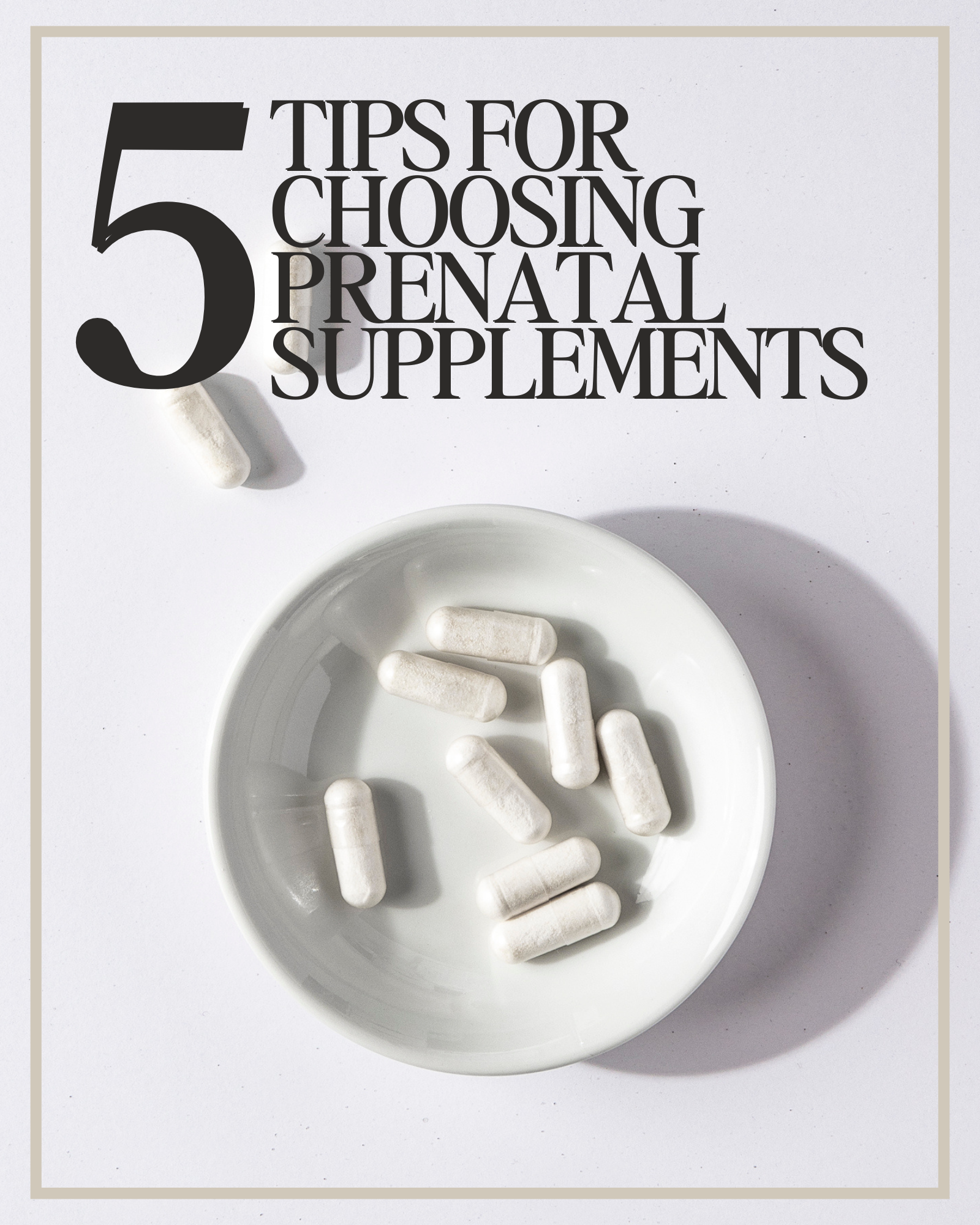
One of my favorite parts about working in functional nutrition is that I get to take a deeper dive into the root causes of health issues. Fertility is something that is so interconnected to every system in the body, that we sometimes forget that something that may seem totally unrelated, could actually be the root of everything else. That’s why I’m excited to talk about how gut health specifically impacts fertility.
he gut impacts your entire body – from modulating risk for chronic diseases like heart disease, diabetes, and cancer, to impacting your mood, anxiety and depression. There is A LOT of research happening these days around gut health, and there’s more coming out every day about how the gut microbiome impacts fertility.
What is the Microbiome?
So first, let’s talk about what the gut microbiome actually is. The gut microbiome is essentially all the bacteria that live inside your digestive system, specifically the large intestine. In the gut there are 100 trillion bacteria cells – more cells than our body’s own cells!
While there can certainly be bad bacteria that cause infections and disease, there’s also a whole host of beneficial bacteria that work hard to digest and absorb our food, signal neurotransmitters to our brains, fight inflammation and boost immunity.

The microbiome impacts:
- Energy levels
- Mood, stress and brain health
- Digestive health
- Immune function
- Skin health
- Inflammation
- Weight
- Hormones
Keeping our microbiome happy is essential for almost everything else happening in the body! The problem is, for many of us our gut balance between good bacteria and bad bacteria is way off. Whether you’re having obvious digestive symptoms (gas, bloating, constipation, diarrhea, etc.), or something else is going on in your body – you likely need to take a closer look into the health of your microbiome.
5 Ways Gut Health Impacts Fertility
One of the most clear connections between the health of your microbiome and fertility, is through the regulation of sex hormones, namely estrogen.
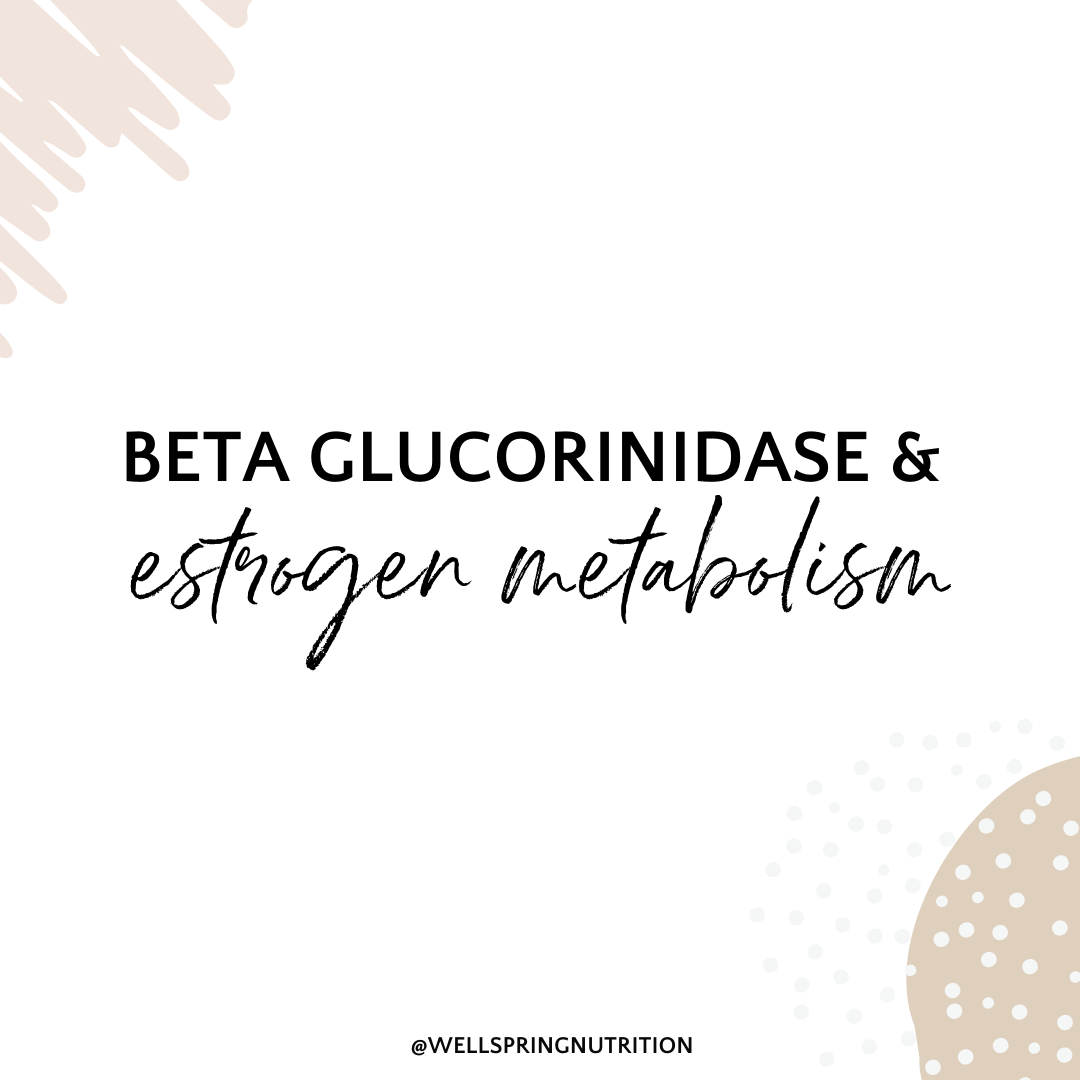
Gut Health and Hormone Balance
Estrogen is a hormone that the body makes, uses and then needs to get rid of. It goes through three phases of detoxification to be able to remove it from the body. The last step in the process is controlled by the gut microbiome.
There’s an enzyme in your large intestine called Beta glucuronidase, and it’s responsible for unpacking estrogen and allowing to it be re-circulated and re-absorbed in the body.
When you have high levels of B-glucuronidase, it’s usually a sign that you likely have excess estrogen in your body (estrogen dominance) and may have even experienced some of these symptoms, like menstrual cycle problems, painful periods, heavy bleeding, etc.
Signs of Estrogen Dominance:
- Mood swings/mood instability
- Water retention
- Difficulty losing body fat
- Acne and skin issues
- Irregular periods or anovulatory cycles
- Painful cycles
- Low sex drive
- Difficulty building lean muscle mass
- Poor recovery from exercise
- Sleep issues
When our bodies can’t eliminate excess estrogen through the GI tract it actually impairs fertility because it throws off the ratio between estrogen and progesterone, and ultimately causes a higher risk for miscarriage.
Remember, any dysbiosis prior to pregnancy is also going to worsen during pregnancy, so it’s a good idea to work on your gut health prior to conceiving.
According to a recent review, without a healthy microbiome, estrogen metabolism and function becomes impaired and can lead to a number of health consequences including endometriosis, PCOS, endometrial hyperplasia, and infertility.
Authors of this review concluded that treating the gut microbiome to modulate estrogen levels should be considered as a new future treatment for estrogen-mediated diseases including infertility.
Gut Health and Weight
The gut microbiome has been associated with higher pre-pregnancy weight as well as more weight gain during pregnancy. We know that excess weight impacts fertility, and researchers have found that those who are overweight have a different microbiome, with different types of bacterial strains than their normal weight counterparts.
There’s evidence that higher calorie diets rich in sugar and processed foods actually skew the balance of microbes. In fact, a recent study showed that the diversity of these microbes can be influenced by diet within just 24 hours!
Diets based in fruits, vegetables and plenty of fiber support the microbiome, whereas the Standard American Diet (SAD) has been shown to be detrimental to the microbiome.
Gut Health and Thyroid
As mentioned earlier, when there is an imbalance in the microbiome, it impacts immunologic and metabolic functions. A study in 2015 found that hypo- and hyper-thyroidism was associated to small intestinal bacterial overgrowth (SIBO), and another study in 2019 found an association between dysbiosis and thyroid cancer and thyroid nodules.
Since your thyroid health is so important for not only all metabolic function, but also fertility, it’s important to take this into consideration.
An under-active thyroid can impact fertility in a few different ways:
- Decreased cellular energy – meaning less mitochondria (your cell’s powerhouse) on ovarian cells, causing irregular or absent cycles.
- Increased prolactin – which suppresses ovulation by blocking the release of FSH
- Decreased insulin sensitivity – more insulin in the blood increases androgens, which can disrupt ovulation and is especially detrimental for women with PCOS
Gut Health and Inflammation
You don’t need to have inflammatory bowel disease to have inflammation in the gut, or your gut causing inflammation in other parts of the body. For example, if you have intestinal permeability (aka “leaky gut”), there could be bacterial products entering the blood stream, causing your immune system to attack them and cause chronic inflammation.
Since inflammation is linked to so many chronic diseases and infertility, this is an important link to consider.
Gut Health and Pregnancy Complications
Research has shown the poor gut health was associated with higher risk of preeclampsia, gestational diabetes, and preterm birth. The microbiome has also been looked at for infant health and studies have shown a connection between imbalances in the microbiome with increased risk of eczema, asthma, and allergies. A healthy microbiome will also contribute to your baby’s immune function, inflammation, and healthy weight throughout their life.
How Do I know if I need Help with my Gut Health and Fertility?
So by now I’m sure you’re convinced that gut health plays a major role in fertility. But how do you know if taking a daily probiotic is enough? Ask yourself:
- Have I been suffering with digestive issues for years (this is just my new “normal”)
- Do I often fluctuate between feeling constipated or having loose stools?
- Are there foods that I avoid because I can’t tolerate them?
- Do I have frequent acid reflux?
- Do I have signs of estrogen dominance? (heavy period, PMS, excess weight and weight loss resistance, etc.)
If you answered yes to any of these questions or you just feel that it’s time to take a closer look into your gut health, then set up a free discovery call with me to see how functional nutrition can help you on your fertility journey.
And let me know in the comments below what was surprising for you about this blog post!
References
- https://www.ncbi.nlm.nih.gov/pubmed/28778332
- https://www.ncbi.nlm.nih.gov/pubmed/25564410
- https://www.ncbi.nlm.nih.gov/pmc/articles/PMC4216449/
- https://www.ncbi.nlm.nih.gov/pmc/articles/PMC4137456/
- https://www.ncbi.nlm.nih.gov/pmc/articles/PMC4845518/
- https://www.ncbi.nlm.nih.gov/pmc/articles/PMC2701523/
- https://www.ncbi.nlm.nih.gov/pubmed/28388917
- https://www.ncbi.nlm.nih.gov/pubmed/30584647
- https://link.springer.com/article/10.1007%2Fs12020-014-0509-2
- https://www.ncbi.nlm.nih.gov/pubmed/32070720
- https://www.ncbi.nlm.nih.gov/pubmed/32064643
- https://www.ncbi.nlm.nih.gov/pubmed/32063084
Want to know how to boost your fertility diet?
Then you need to learn about Choline! Choline is just as important in helping to prevent neural tube defects as the well known vitamin folate, but unfortunately, it’s not as well known or spoken about. If you’re looking for some choline rich foods for fertility, then read on!
Choline also plays an important role in:
- Supporting the transfer of nutrients across the placenta to ensure your baby receives the nutrients it needs
- Fetal brain development
- May assist in reducing the chances of your baby developing chronic diseases later in life
What’s the data?
The research that has been done over the past 20 years, outlines very clearly the benefits of choline when it comes to both overall health during pregnancy and the development of our babies brain.
Studies on animal models have shown that Choline plays a key role in enhancing brain function and also serves to protect the brain and its various elements as it develops.

Human studies on the other hand have shown that taking Choline in doses higher than what is currently recommended by various health bodies, has multiple benefits, including:
- Enhancing the function of the placenta
- May reduce the risk of preeclampsia
- Improves brain development in the infant
- Boosts reaction times in the infant
- Enhances an infants visual memory
Why haven’t you heard of Choline before?
Unfortunately, the research around Choline is relatively new in scientific terms (by this I mean the research has only really been looking into this topic for the past 20 years), and it’s not a well known supplement when it comes to fertility (well outside of the dietetic community anyway!).
The evidence while not well known, is really promising and it is well worth aiming to include more sources of choline in your diet if you are trying to conceive or pregnant.
So where do you find Choline?
Choline is found in the highest amounts in animal products.
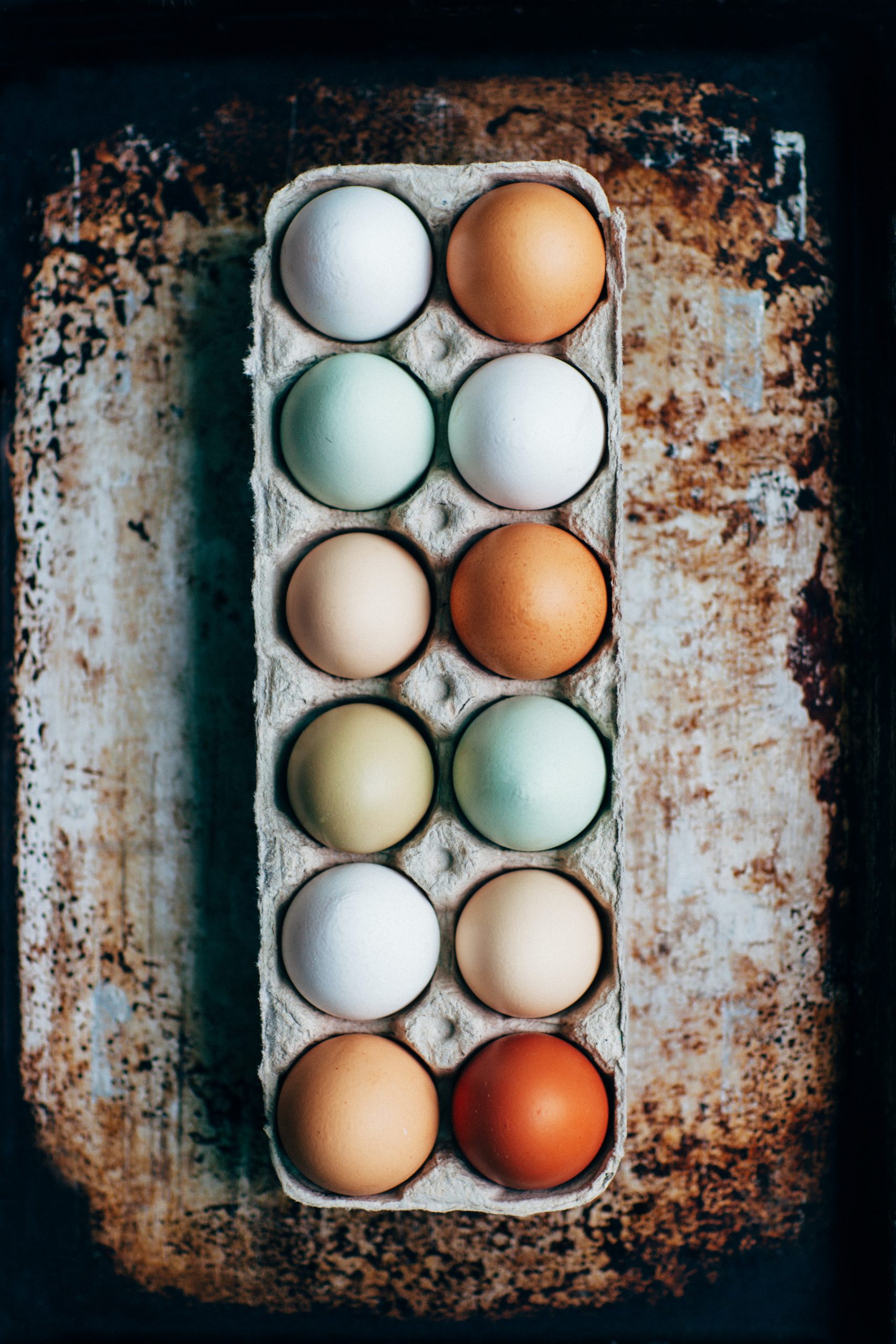
Top Choline Rich Foods for Fertility:
- Eggs
- Salmon
- Beef
- Chicken
- Dairy products
- Soybeans
Like many other nutrients, our choline needs increase dramatically during pregnancy with some studies suggesting that our choline needs may be almost double what is currently recommended by the guidelines.
Should I supplement Choline?
Unfortunately, many of us don’t currently get our choline needs from food alone, and in these cases a supplement may be of benefit to support a healthy pregnancy. Not all prenatal supplements contain Choline, and some also don’t contain enough to provide you with all the benefits. Some of my favorite prenatals that include adequate choline are FullWell Prenatal and Needed.
If you’re already taking a prenatal that doesn’t have choline, consider supplementing or assessing your diet to see if you meet the choline requirements for adequate fertility and pregnancy. You can find more fertility supportive supplements in my fertility dispensary here. Remember, it’s important to ensure that you work with a professional when selecting the right prenatal supplements for you!
Looking for More Support?

Looking for more 1-on-1 support on your fertility journey? Apply for a free 20 minute strategy call today. I can help you regulate your cycles, ovulate, and have a healthy pregnancy using my proven functional nutrition method. I look forward to speaking with you!
References:
- Blusztajn, Jan Krzysztof, and Tiffany J. Mellott. “Neuroprotective actions of perinatal choline nutrition.” Clinical chemistry and laboratory medicine 3 (2013): 591-599.
- Kwan, Sze Ting Cecilia, et al. “Maternal choline supplementation during pregnancy improves placental vascularization and modulates placental nutrient supply in a sexually dimorphic manner.” Placenta 45 (2016): 130. ; Jiang, Xinyin, et al. “A higher maternal choline intake among third-trimester pregnant women lowers placental and circulating
- Boeke, Caroline E., et al. “Choline intake during pregnancy and child cognition at age 7 years.” American journal of epidemiology 12 (2012): 1338-1347.
- What Is Choline? An Essential Nutrient With Many Benefits (healthline.com)

Like many of my clients and readers, I was given hormonal birth control with absolutely no discussion on the side effects of the pill. I was handed the pill and never really thought twice about it. I just knew it gave me a “regular” period and would help me protect against an unwanted pregnancy. It was only in my THIRTIES that I discovered how the pill depletes certain nutrients, affects mood, weight, and so much more. If you’re curious about which nutrients are depleted on hormonal birth control, then keep reading on.
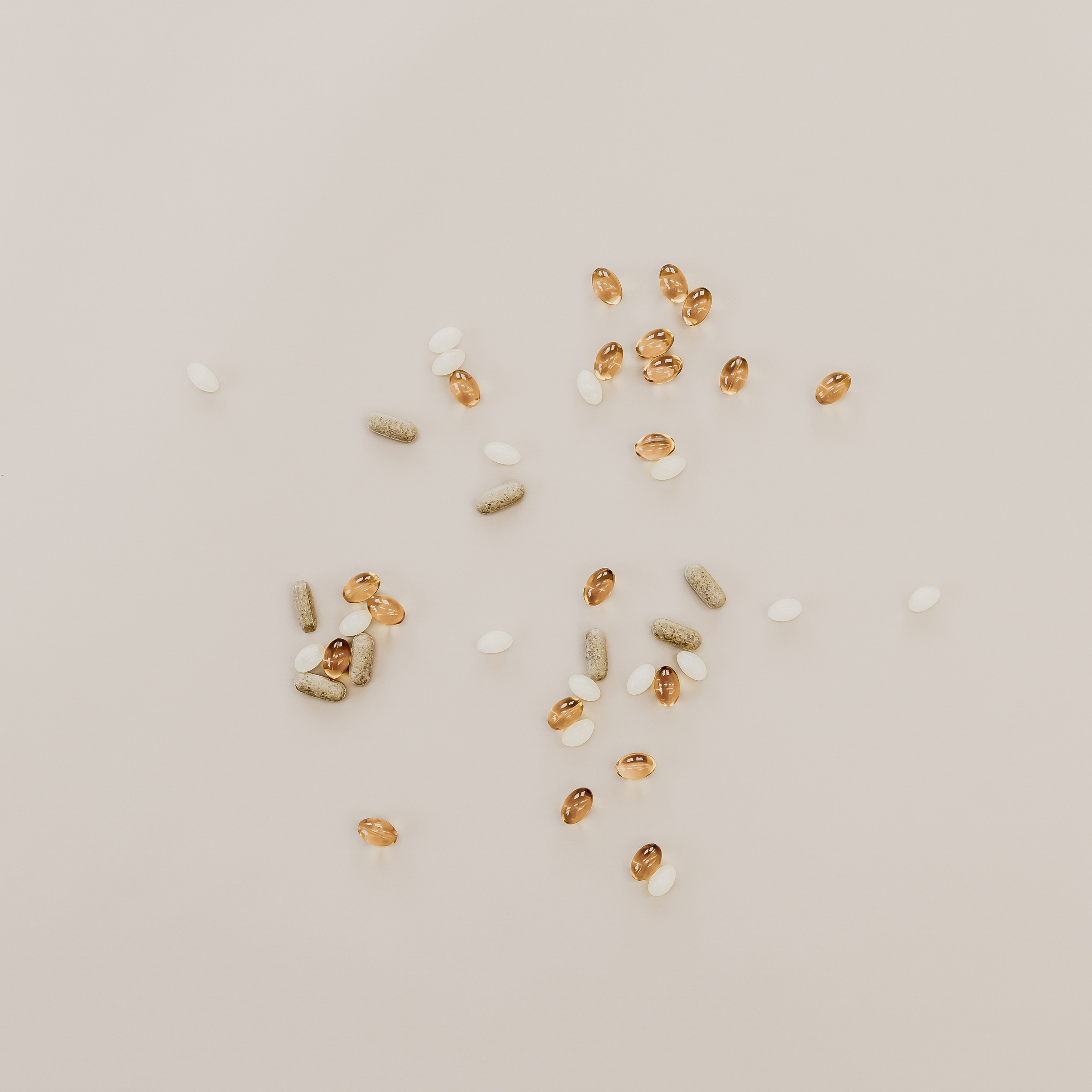
8 Nutrients depleted on hormonal birth control and how they impact fertility:
Zinc
Found in foods such as eggs, seafood, meat, nuts, seeds, beans and whole grains. Zinc plays an important role in both egg and sperm health.
Magnesium
Found in foods such as avocado, banana, seafood, green leafy vegetables, nuts and seeds. Magnesium plays an important role in sleep, bone health and our muscles ability to relax.
Vitamin C
Found in foods such as oranges, broccoli, kiwi fruit and guava. Vitamin C is a valuable antioxidant that keeps our eggs and sperm protected from oxidative stress caused by free radicals.
Folate
Found in green leafy vegetables and fortified breads and cereals. Folate is essential when trying to conceive and helps to prevent the formation of neural tube defects in early pregnancy.
Selenium
Found in foods such as Brazil nuts, meats and seafood. Selenium plays a valuable role in our thyroid function and helps to prevent sperm from mutating or becoming damaged.
Vitamin B2
Found in eggs, meats and dairy products. Vitamin B2 is a common nutrient depleted when on the pill and is often the culprit behind those pesky headaches!
Vitamin B6
Found in foods like breads and cereals. Vitamin B6 is commonly depleted in those taking the pill. It plays an important role in fertility and the luteal phase of the menstrual cycle.
Vitamin B12
Found in foods such as fish, beef, and fortified cereals. B12 is essential for healthy cell formation, a must when trying to conceive.
Ideally you would want to ensure that these levels are checked and corrected where necessary before you start thinking about conceiving to ensure a healthy baby and pregnancy. You can start a prenatal, a few months before coming off the pill to help with the transition of coming off.
Wondering what else you can do to support your body when coming off the pill?
Let’s face it, coming off the pill can be a scary thought and can lead to some not so nice side-effects including:
- Post-pill amenorrhea
- Painful, heavy periods
- Irregular cycles that are hard to predict
- Acne
- Headaches or migraines
- Changes in weight (loss or gain)
- Changes to mood
- Digestive upset (IBS like symptoms)
- Breast tenderness
Supporting your body through nutrition can be a great way to make the transition easier.
Try these 9 tips to support your body when coming off the pill
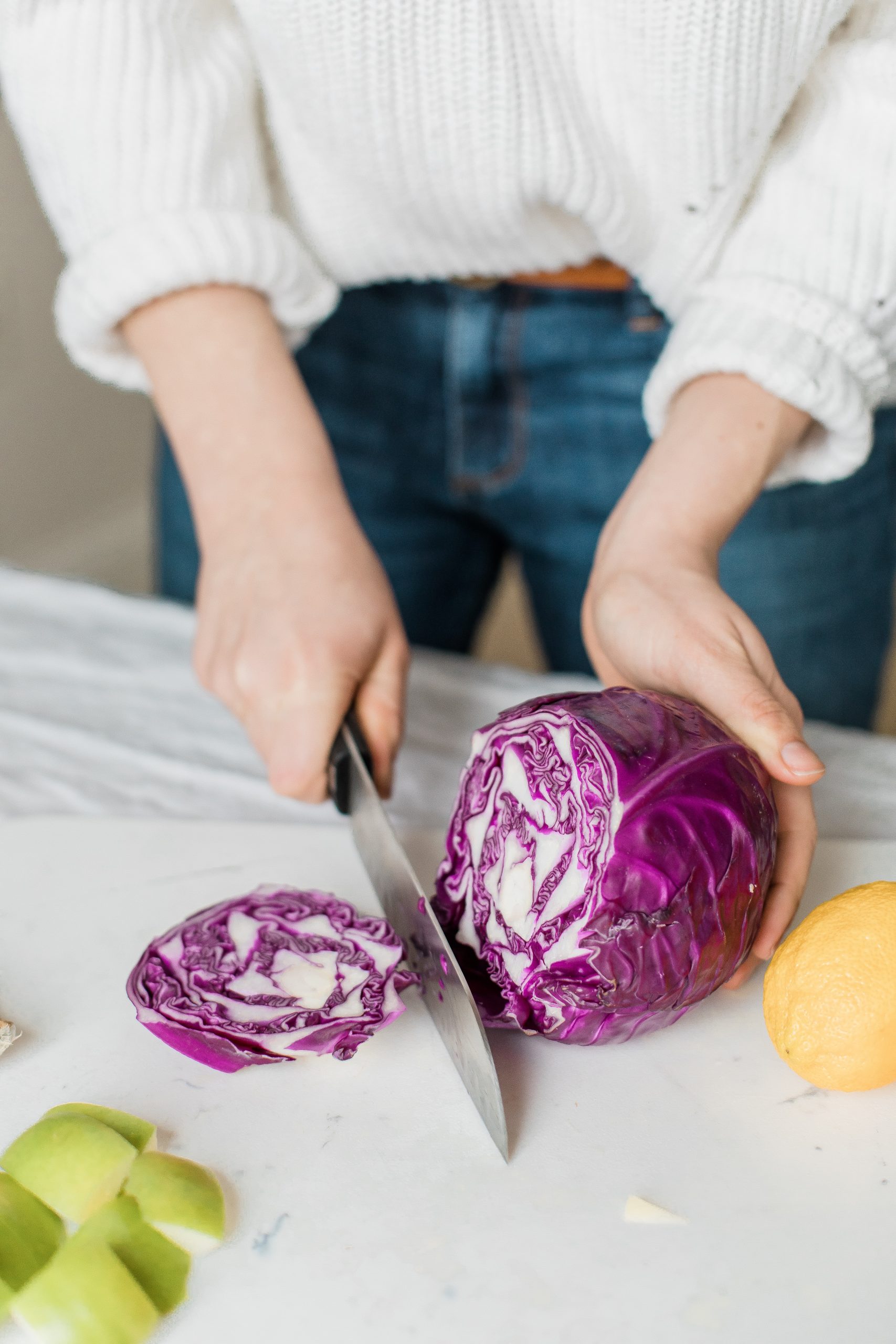
- Aim to have at least 1 bowel movement each day to facilitate the removal of excess estrogen in the body.
- Eat plenty of cruciferous vegetables to lower estrogen levels – try eating 1 cup of bok or pak choy, broccoli, cabbage, cauliflower, arugula and Brussel sprouts each day!
- Eat regularly – aim to eat every 2-3 hours to support blood sugar and hormone balance. Putting your body under too much stress can increase the stress hormone cortisol.
- Eat enough fibre to encourage regular bowel movements – aim to eat between 3-6 cups of colourful, leafy vegetables each day.
- Eat lean protein to support your detox pathways – try turkey, chicken, pork, beef, and seafood.
- Include plenty of healthy fats to support hormone creation – try extra-virgin olive oil, avocado, nuts and seeds.
- Stay hydrated by drinking plenty of water – aim for at least 8 cups per day.
- Try to avoid highly processed foods – think sugary foods, fast foods and refined oils.
- Avoid alcohol if you can! Alcohol is also removed via our liver, so give it a break if you can.
References:
- How Birth Control Pills Affect Your Nutritional Needs – Scientific American
- Oral contraceptives and changes in nutritional requirements – PubMed (nih.gov)
Looking for more support with your fertility? Book your free 30 minute 1:1 strategy call with me to learn how I can support you using functional nutrition, specialty lab testing, and targeted supplements. Can’t wait to speak to you!

The Preconception Playbook
This free playbook provides specific actionable tips to get started on your fertility journey, as well as what to avoid while you're trying to conceive.
Get the free playbook

